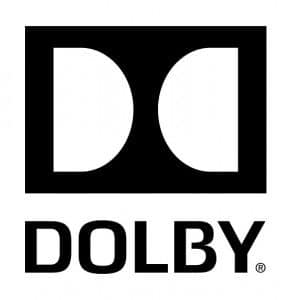Adobe, Dolby and the Battle Over Your Software
What happens when your legally-purchased software becomes unlicensed...
Last week, Adobe began sending out letters to some of its customers warning them that they were using old versions of Adobe software and that, if they continued, they could face “potential claims of infringement by third parties.”
Though the letter nor subsequent Adobe statements say who the “third parties” might be, the most obvious signs point to Dolby, which has been locked in a year-long legal battle with the software maker.
According to Vice, the letters have gone to users of older versions of Lightroom Classic, Photoshop, Premiere, Animate, and Media Director applications. Users of those versions are advised to upgrade as soon as practical.
However, many users are upset about this. Many, especially those with older projects they need to support, worry that switching to the new versions will cause problems and would much prefer to stick with the versions they are using.
But all of this raises a simple question: What happened and what does it mean for the software subscription model? The answers, as we’ll see, aren’t easy.
Background on the Adobe/Dolby Battle

In 2012 Adobe decided to largely ditch the model of selling units of software for a subscription model it dubbed the Creative Cloud.
The idea was straightforward, rather than paying a one-time flat fee for an application, users would pay a monthly subscription and not only use the software, but receive ongoing updates for it. While the model has been controversial, it’s also been seen as a success for Adobe.
However, it also produced a problem for one of Adobe’s partners, Dolby. Starting in 2002, Dolby provided audio technology to Adobe to be used in its software for both encoding and decoding audio. However, the licensing fee was based on sales figures, something that became much more difficult to calculate with the move to a subscription model.
Dolby entered into new licensing agreements both in 2012 and 2013 but it seems that those agreements fell apart pretty quick. The agreements, for example, were supposed to provide for third-party audits but Dolby accused Adobe of not even providing the basics for that.
According to Dolby’s lawsuit, in September 2017, the company announced it was exercising its audit rights for the 2015-2017 period. However, they claim that Adobe failed to provide the needed information, just as they had done for the 2012-2014 period.

Dolby also claims that Adobe improperly consolidated multiple software products when paying royalties. For example, offering a bundle that had four apps with Dolby software, but only paying for one use. Other issues included problems with site licenses, multiple sales to a single customer and so forth.
This resulted in the March 2018 lawsuit that is ongoing.
However, even before the lawsuit, Adobe removed Dolby software from its products, instead relying on the operating system to decode Dolby audio and not providing any ability to encode in the format.
Though it’s impossible to say for certain that this is what’s going on, it appears that all of the applications Adobe is warning about are before this late-2017 date, meaning that they are versions with Dolby technology still in them.
As such, Adobe appears to be encouraging users to upgrade to Dolby-free versions of the software and, at the same time, limiting their liability should those users not do so.
However, this hasn’t sat well with Adobe users. Even those not impacted by the letter directly are threatening to cancel subscriptions or to at least look for alternatives.
Whether this will actually impact Adobe remains to be seen, but many are using it as a cautionary tale about the danger of subscription software. However, that may not be wholly fair, after all, not owning your software is far from just a problem with subscription software.
Permanent Software, Temporary Licenses

For users of older Adobe software, it’s easy to see why this feels like a raw deal. They subscribed to Adobe Creative and began using fully legal software only to be told years later that it’s not due to a licensing dispute the end users are not a part of.
However, it’s not simply a flaw of the subscription model. Such a dispute could have happened just as easily in 2011, before the Creative Cloud. If Dolby had felt Adobe was not paying the proper royalties, we could have seen a similar fight play out and it may well have ended with Adobe patching out Dolby in older versions.
The truth is that the concept of “owning” software a very dated one legally. Nearly all software purchased, regardless of how it is obtained, is licensed to the user, not transferred. This was seen in court cases in 2008 and 2010, where courts found that software is licensed and that those licenses can impose some very significant restrictions on its use, including blocking its resale.
Those license agreements, however, also deal with liability and, since they are license agreements written by software makers, it’s safe to assume they’re going to try and shift as much liability away from them as possible. Section 10 from Adobe’s terms of service make that pretty clear.
The result is that software ownership really isn’t a thing in 2019, regardless of how you acquire it. Pretty much no matter what, you’re acquiring a license and nothing more. As such, you don’t own the software you use but you assume much of the liability for using it.
That makes situations like this one unfortunate, but wholly possible for just about software you use.
Bottom Line
In the end, Adobe users are right to be upset. Even though we don’t know if and to what extent Adobe is liable to Dolby, they still likely could have worked out a way to let their customers continue using the software they want but instead opted to give them the choice of upgrading or facing potential liability.
Dolby has not said that it has any intention of targeting individual users of Adobe software. Adobe, at least right now, is the target of its anger. Still, it’s easy to see why users are reluctant to take on that risk, especially business users that have more to lose and would be larger targets.
My sympathies are definitely with the software users who are being punished for using legally-acquired software that became unlicensed through no fault of their own.
While we can’t know the exact reasons for Adobe’s move, if it turns out that there is anything at all they could have done to prevent this, they should be held accountable by their customers.
While copyright disputes happen and licensed software is the norm, it shouldn’t be a free pass for companies to throw their customers under the bus. Adobe may not face consequences for this legally, but it will be their customers that have the final say.
Want to Reuse or Republish this Content?
If you want to feature this article in your site, classroom or elsewhere, just let us know! We usually grant permission within 24 hours.
